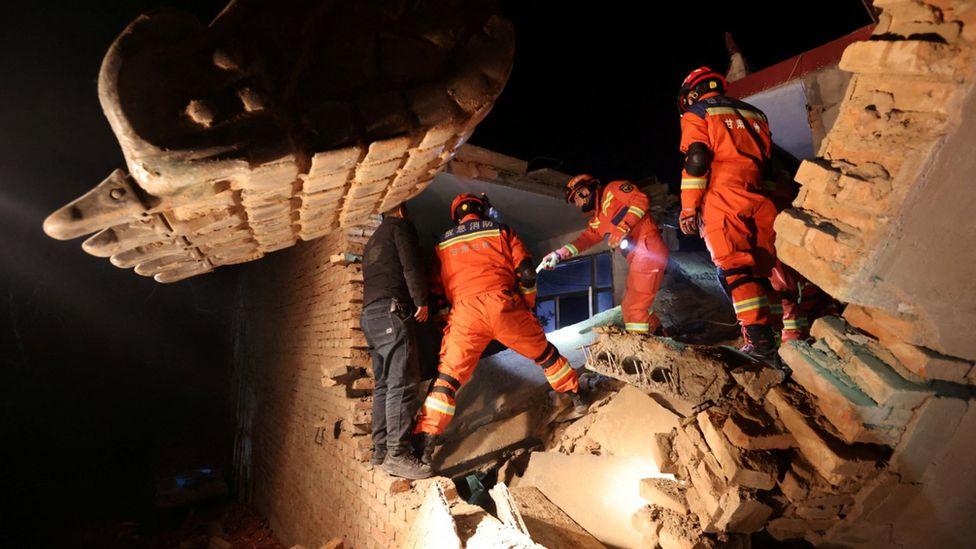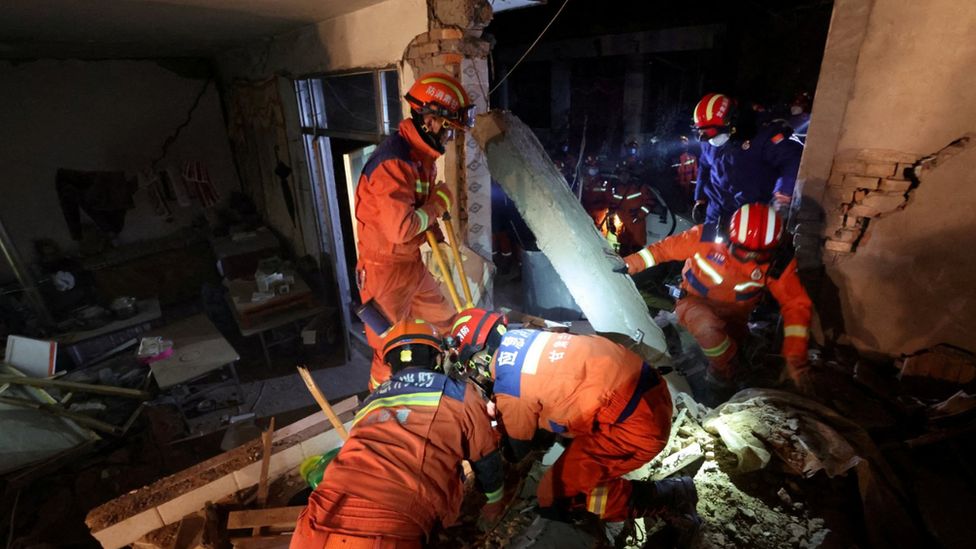By Tiffanie Turnbull
Major flooding in northern Australia has begun to ease but many towns remain isolated in crocodile-infested waters as supplies dwindle.
Extreme weather driven by ex-tropical cyclone Jasper has dumped a year's worth of rain on parts of Queensland.
Some rivers have swollen to record levels, flooding homes, severing roads and power, and forcing people to flee houses in boats. One man is missing.
Hundreds of people still require rescue, many in remote communities.
Queensland authorities say the rain has become less intense, and river levels have begun to fall.
Rescue and relief efforts have been hampered by the closure of Cairns Airport, where planes were pictured submerged on Sunday.
Many communities between Cooktown and Innisfail remain cut off by floodwaters, and food and water stocks are running low.
Of primary concern is Wujal Wujal, where up to 300 people are waiting to be evacuated.
Former mayor Desmond Tayley told the Australian Broadcasting Corporation he had "grave concerns" for the elderly and people with disabilities in the small community.
With no electricity and supplies almost gone, "desperate" locals had been traversing floodwaters where large crocodiles had been seen, he said.
"A lot of people risk their lives to get to and from different places within the community... We've got big crocs close to 6m. Being attacked by one of those, you never see someone again."
Bad weather forced an evacuation attempt to be abandoned on Monday, but authorities said they had now reached the town and were beginning to get the elderly and vulnerable out.
A search is under way in a separate community for the missing man, 85, who was last seen late on Sunday.
State officials have promised essential supplies including medicine are being urgently flown to towns across the region.
As some areas begin cleaning up, locals have been warned of risks including disease from contaminated water and displaced wild animals.
Prime Minister Anthony Albanese, who will visit the flood zones later this week, also announced emergency payments for those affected, and ongoing allowances for eligible people who have lost work as a result of the disaster.
"[There] will be some difficult days and weeks ahead. One of the things that I find though is that the worst of times brings out the best of the Australian character," he said.
Many locals were taken by surprise at the extent of the downpour, with some saying they were not properly warned.
But Minister for Emergency Management Murray Watt said the Bureau of Meteorology's weather tracking systems could not have predicted the scale of the disaster, saying it was a "highly unpredictable weather system".
The weather bureau had done its "absolute best" and given important advice to emergency crews, he added. "It is pretty remarkable that, in an event of this scale, that we have not yet lost a life or a serious injury."
In recent years, Australia has been plagued by disasters including severe droughts and bushfires, successive years of record floods, and six mass bleaching events on the Great Barrier Reef - increasing concerns about the impacts of climate change.
State authorities estimate the cost of this latest disaster will top A$1bn (£529m; $670m).



















Edited by Yvette Tan